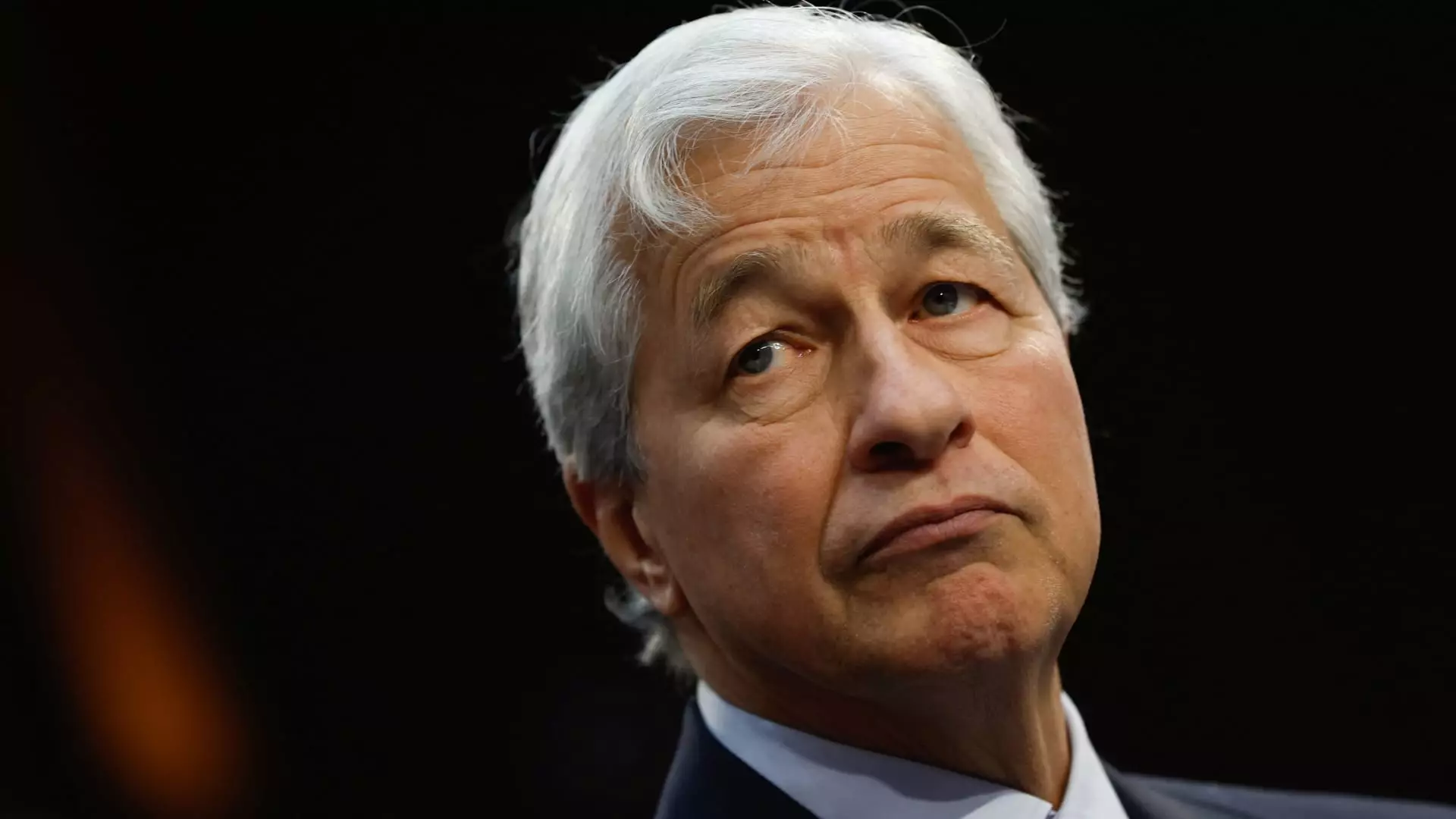As we navigate through the complexities of our contemporary world, the specter of geopolitical instability looms larger than ever. Jamie Dimon, the CEO of JPMorgan Chase, has highlighted the troubling nature of this landscape, particularly with regards to the rising hostilities in the Middle East and the ongoing ramifications of Russia’s invasion of Ukraine. During a recent earnings report, Dimon articulated his concerns about the accelerating pace of global conflicts, underscoring that the fallout from these tensions could disrupt not only economic stability in the short-term but also alter the trajectory of history itself.
The implications of the unrest are severe, manifesting in significant humanitarian crises and economic uncertainties. As conflicts rage on, Dimon has emphasized the gravity of the situation, stating, “There is significant human suffering,” and implying that the consequences extend beyond immediate financial forecasts. The implications of these crises provoke questions about the efficacy of the international order established post-World War II, which now appears increasingly fragile amidst the growing U.S.-China rivalry and the looming threat of nuclear intimidation from nations like Iran, North Korea, and Russia.
Middle East Tensions and Their Fallout
The devastating conflict between Israel and Hamas has worsened since the onset of hostilities following the October 7, 2023 attack. As the one-year anniversary of this tragic escalation approaches, casualties have mounted into the tens of thousands. This confrontation has spiraled beyond the initial players, drawing in actors like Hezbollah and escalating fears of wider regional conflict, particularly with the involvement of Iran. The consequences of these developments count not only human loss but also the potential for catastrophic economic impacts, especially if retaliations target key infrastructures such as Iranian oil facilities.
Adding another layer of complexity, the recent Israeli airstrikes on Beirut resulted in casualties, marking a grim reminder of the conflict’s potential for geographical expansion. Such scenarios raise alarms for both regional and global security, prompting calls for decisive leadership from American and Western leaders, as emphasized by Dimon. The urgency for action has never been more pressing, as a checked escalation may lead to dramatic shifts in international power dynamics and economic markets.
Economic Ramifications Amidst Conflict
Amidst these geopolitical tensions, Dimon remains cautious about the future of the global economy. While there are indications that the Federal Reserve has successfully navigated the economy toward a “soft landing,” challenges abound that could disrupt this positive trend. Dimon points out critical issues such as burgeoning fiscal deficits and the urgent need for infrastructure development that loom over prospects for sustainable growth.
Furthermore, the rearmament of global powers signifies a shift in the economic focus, as nations respond to perceived threats by enhancing their military capabilities. This remilitarization could steer resources away from developmental initiatives that ordinarily contribute to economic stability. The intertwining of economic matters with geopolitical tensions complicates efforts to foster international cooperation—an essential ingredient for sustained global prosperity.
It is evident that the current geopolitical climate necessitates robust leadership and a comprehensive understanding of the interconnectedness of global conflicts and economic outcomes. The uncertainty and risks continue to amplify, and it is vital for stakeholders across nations to address these challenges collaboratively to averting further crises.

